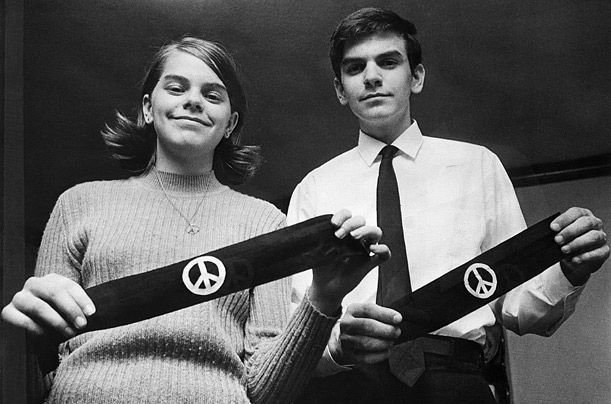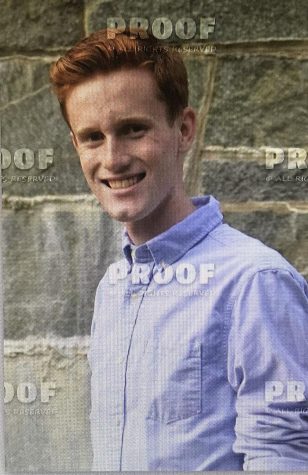Tinker v. Des Moines: You can wear and say what you want… to a point
March 15, 2018
On February 24, 1969, the Supreme Court of the United States ruled that students at school retain their First Amendment rights, the freedom of speech and expression. Mary Beth and John Tinker wore black armbands to school peacefully protesting the Vietnam War at the time. This happened in December of 1965 at a high school in Des Moines, Iowa. After lunch on this school day, Tinker was called down to the office. She was suspended for violating a district ban on the armbands. Tinker’s 1st Amendment Right was clearly violated.
According to the 2017 Constitution Center article: Protecting student free speech, the town controversy made the front page of the town’s newspaper, The Des Moines Register. The school board president, Ora Niffenegger, claimed that the action was a disturbing influence in the school. Niffenegger believed that they should be supporting the United States’ decision to go to war. Do schools have to support their countries’ decisions?
From here, at a school board meeting, it was decided to keep the ban with a 5-4 vote. The Tinkers decided to take the case to court and continued fighting to repeal the ban that the school was imposing.
According to the 1992 Cornell Law School article: Tinker v. Des Moines, the Tinker v Des Moines case headed to the district regional court after the school committee meeting. The district court dismissed the complaint, stating that the regulation was within the board’s power. So limits the power of school boards?
Despite the finding of no interference in the school atmosphere, the Tinkers had to keep fighting. This then brought up the question: What does the school board have control of? To what extent can they go to ban student expression?
According to the 2018 ACLU article: Landmark Supreme Court Ruling of Student Expression, after a long four years of fighting, the Tinker v Des Moines case was finally brought to the Supreme Court. The Supreme Court decided on a 7-2 vote to repeal the ban. They claimed: “students do not shed their rights at the schoolhouse gate”.
This then brought up the question, to what extent can student express themselves? The court claimed that as long it was not interfering with school, it would be allowed.
Certain schools continue to put bans and regulations in place. Student’s expression can be out of control and needs to be taken care of. However, this does violate everyone’s first amendment. Is this not a direct violation of the first amendment? The Tinker v Des Moines court case can be used in many student expression conflicts.



